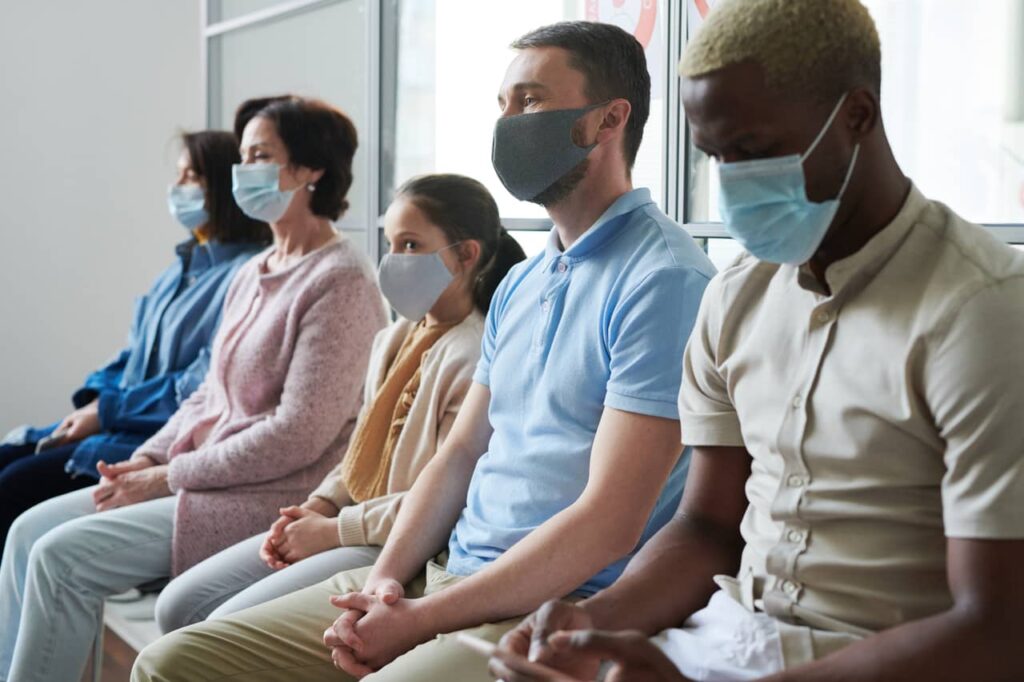In this crumb we will be discussing Covid 19 Long Haul Symptoms, who is at risk of being a Covid long hauler, and if the vaccine can improve the symptoms.
We are going through a tough time. Coronavirus has wreaked havoc around the world.
This infamous infectious disease has swept away a large population of the world and even larger people got infected to this date.
Some people were severely infected and were hospitalized.
Some were mildly infected and didn’t need professional surveillance.
They consulted the doctors, took medicines, maintained social distance by isolating themselves, and recovered after a few weeks.
Some people were infected, but they were asymptomatic.
They didn’t experience any symptoms or effects of coronavirus.
Whoever the person was, once people are infected, about 7 out of 10 have reported lingering effects of the infection even after testing negative.
After a month or weeks of recovery, people are complaining about how they are still suffering from a disease or another.
Most of the complaints have been registered about fatigue, brain fog, nausea, and chills.
These Covid-19 long-haul symptoms have been reported after being tested negative for the virus.
So, what is this aftereffect of Covid-19? Why is there still a lingering effect of the infection?
This is known as a Covid-19 long-haul symptom.
People who have been infected once are experiencing a long-term symptom of being diagnosed with this coronavirus.
What are Covid 19 Long Haul Symptoms?
If you have landed in a hospital after being infected with coronavirus or if you have been infected at all, then there is a chance that you are still experiencing the effects of infection.
About 7 out of 10 coronavirus-positive people have said that they are still experiencing the symptoms of the infection even when they are tested negative.
Earlier, when we had less knowledge about the virus, and when people were coming up with these complaints, the doctors and experts regarded it is as paranoia or just an aftereffect on mental health after the recovery.
However, after collecting all the studies and research performed around the period of January 2020 till 2021, it is confirmed that people who were diagnosed with coronavirus are actually experiencing persisting Covid-19 long-haul symptoms.

The thing, that testing negative means that you are now incapable of spreading the virus. You cannot infect another person.
However, it does not mean that you have recovered from the virus and its symptoms itself.
The reason is that your body is not cleaned from the virus. It is still in there.
People have reported that they experienced the symptoms in intervals.
After a month of recovery, a symptom hit them again.
Then they recovered from it. However, a new symptom hit them yet again or the old one made a comeback.
This process of being diagnosed with a medical condition yet and again goes on for at least 12 weeks.
Now, according to doctors and professionals, this long-term syndrome has been named as post-acute sequelae of Covid-19.
Who is Being Affected?
Basically, age group, gender, and other parameters increase the risk of developing long-haul symptoms.
Females are more prone to developing this syndrome than males.
If you have had more than 5 symptoms in the initial weeks of infection, you are more likely to be a long-haul patient.
However, the severity of the symptoms does not signify the possibility of developing the syndrome.
This is because asymptomatic patients or patients with mild symptoms have also complained about developing symptoms in a later stage.

According to a recent study of FAIR, it is stated that 50% of people who were hospitalized have the risk of having symptoms yet again.
Therefore, if you were hospitalized, you might have noticed a downfall in your health and waves of diseases hitting you.
Fatigue, cough, brain fog, anxiety, fever, and chills are the common symptoms people are pointing out.
27.5% of patients who were tested positive and had symptoms, but were not hospitalized had a chance of developing the syndrome.
Whereas 19% of asymptomatic patients are on the possibility of being hit by a wave of symptoms.
Some people are experiencing the effect of post-Covid-19 symptoms for 60 days and some for 30 days.
However, the larger population has suffered for 12 weeks.
The long-haul syndrome can last up to a few weeks, months, or even years.
But, there is a minority in the case of people having active symptoms for years.
Yet, it is true that this long-haul symptom of Covid-19 is a life-altering syndrome.
Still, people should not lose hope of recovering from it completely.
There are cases that have managed to recover from it and are still recovering.
Also Read – Get Rid of Side Belly Fat With These exercises
How Does it Develop in The Patient?
Long-haul syndrome is not new in the medical world.
Many diseases such as chickenpox and shingles.
This lingering effect of the disease after being diagnosed with it has been found common.
The Covid-19 long-haul symptoms hit like a wave.
They come one by one or at once.
Once, you will feel that you have recovered but soon, you may start to feel uncomfortable and sick yet again.
These are flu-like symptoms.
The first and most common symptom is fatigue and short breath.
The interval of the manifestation can be a week or 10 days.
Apart from the minor symptoms, this can also lead to eye infection, headache, body pain, confusion, blood pressure fluctuation, blood palpation, and diarrhea.
Can Vaccine Help Improve Covid-19 Long-Haul Symptoms?
There is no proper research and medical proof of how vaccines can help to reduce long-haul symptoms.
But, a literary study conducted discovered that those patients who have been vaccinated showed speedy recovery from the syndrome.

The vaccine helps to reset the immune system, which decreases inflammation — a major factor in persisting behavior of long-haul symptoms.
So, vaccines may help the patient in a way or another.
Yet, the recovery can take some time.
Pulmonary infection can take quite time to recover.
But, a positive attitude and keeping a healthy diet will ensure your recovery.
The Bottom Line
The long-haul symptom has been found in the Covid-19 patients.
The syndrome is more likely to infect hospitalized patients.
This syndrome can make people experience the effect of infection for a long time.
The patients have reported that they have experienced fatigue, cough, short breath, eye infection, and other such symptoms after the recovery.
Further Reading:



